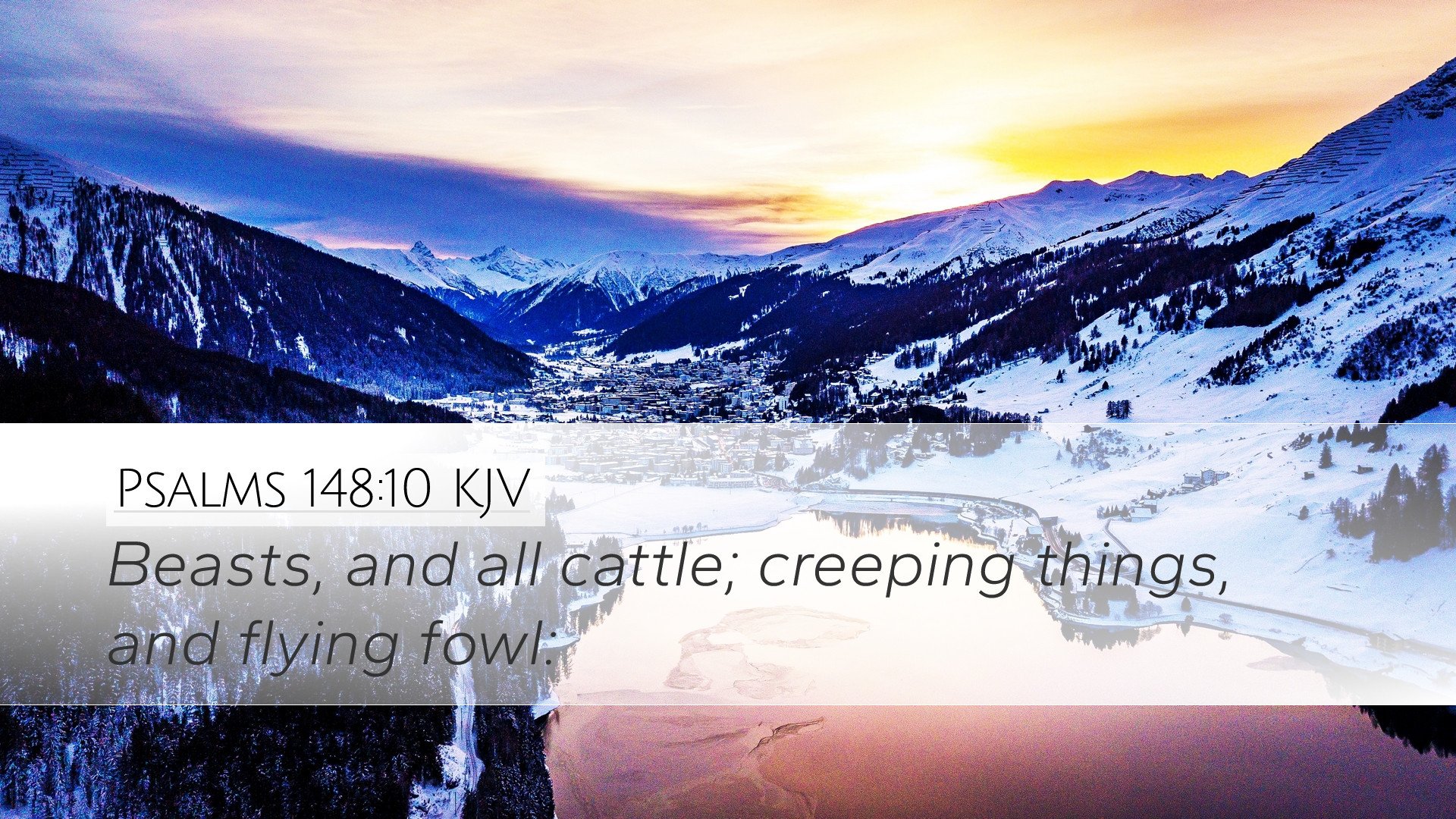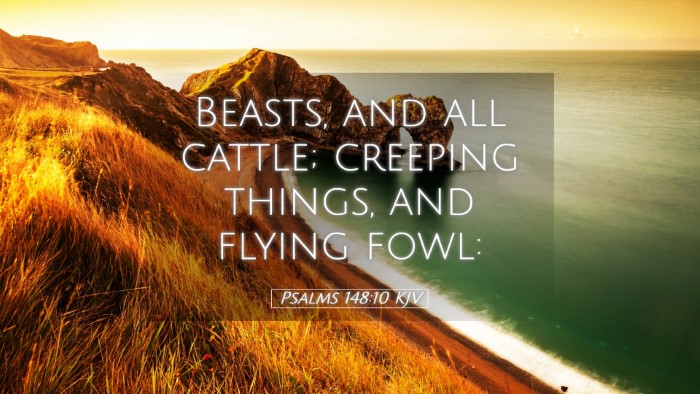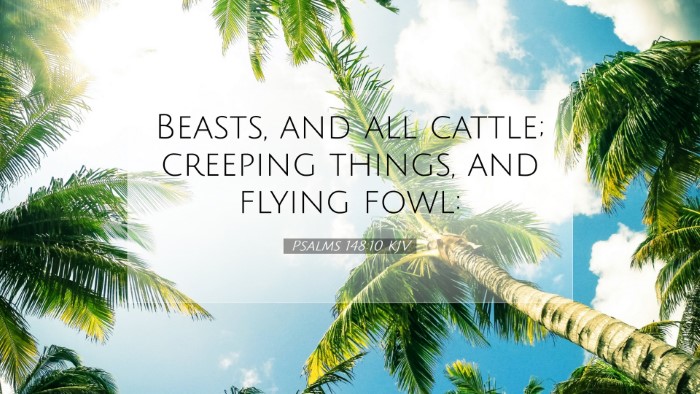Psalms 148:10 - Commentary and Insights
Verse: "Wild animals and all cattle, creeping things and flying birds."
Introduction
The Psalms, often considered the hymnbook of ancient Israel, reflect an array of human emotions and responses to God. Psalm 148 is a call to praise and worship, encompassing not only humanity but all of creation. In this verse, the psalmist delves into various elements of creation, commanding them to join in the chorus of praise to the Creator.
Exegesis of Psalms 148:10
This verse stands as a part of a larger context that invites every part of creation—from the highest heavens to the earth below—to glorify God. Each category mentioned signifies the variety and depth of God’s creative work.
1. Wild Animals and All Cattle
Commentary Insight: Matthew Henry reflects on the diversity within creation, noting that both wild animals and domesticated cattle have their place in God's economy. The juxtaposition illustrates how God's dominion extends over all types of creatures.
- Wild Animals: Representing the untamed aspects of nature, they embody the freedom and raw power of creation, suggesting that even the feral aspects of life are under God's sovereignty.
- Cattle: Symbolizing the domestic sphere, cattle are often associated with human cultivation and stewardship. Their presence shows how God’s intimate relationship with humanity includes the management of the created order.
2. Creeping Things
Insight from Adam Clarke: Clarke notes that "creeping things" can refer to insects, reptiles, and smaller creatures often overlooked in the grandeur of nature. Their inclusion emphasizes that every aspect of creation, no matter how seemingly insignificant, is worthy of praise.
This reflects the idea that all creatures fulfill a purpose in God’s design, drawing attention to the interconnectedness of life and the roles played by even the smallest beings.
3. Flying Birds
Albert Barnes’ Commentary: Barnes highlights the beauty and grace of flying birds, which brings to mind freedom and the heavenly realm. The way birds soar through the skies parallels the spiritual ascent that believers are called to undertake in their worship. The inclusion of birds showcases the wonder of God’s creation and the joy found within it.
In birds, we also see a representative of praise, as their songs and flights reflect the creativity and majesty of their Creator. Their very existence serves as an invitation to humans to lift their hearts in worship.
Theological Themes
This verse encapsulates a few vital theological themes relevant for pastors and theologians:
- The Sovereignty of God: By calling all creation to praise Him, the psalmist asserts God’s authority over the entire universe. It is a reminder that nothing exists outside of God’s will and purpose.
- The Universality of Praise: The invitation to all creatures indicates that praise is not limited to humanity. This can encourage Christians to recognize their role within the broader creation and instill a sense of responsibility towards nature.
- Creation’s Response to the Creator: The various creatures giving praise highlight the idea that the entire cosmos reflects God’s glory. Each creature, in its being and action, contributes to a symphony of worship.
Practical Applications
For pastors and students of the Bible, Psalms 148:10 invites several practical reflections:
- Encouragement for Stewardship: Understanding that God’s creations are involved in praise can motivate believers to take better care of the environment and animals.
- Promoting Inclusivity in Worship: Just as the psalmist includes all elements of creation in praise, churches should encourage diverse expressions of worship that reflect the community around them.
- Marrying the Sacred and the Secular: Acknowledging that every creature plays a part in praising God can help believers see their secular occupations as avenues for honoring God.
Conclusion
Psalms 148:10 serves as a profound call to recognize the majesty of God as seen in His creation. It reminds us of our interconnectedness with the world around us and the communal nature of worship that transcends humanity. Such insights enrich the study of Scripture, inviting believers to see the divine in all aspects of life.


